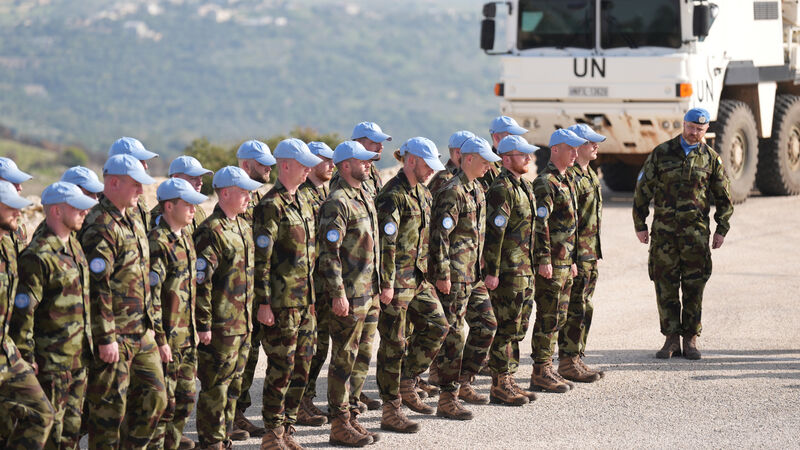Letters to the Editor: Ireland has a chance to show active foreign policy

Irish troops on Parade at Camp Shamrock near the border with Lebanon and Israel where Irish Defence Forces troops are serving with the Unifil peacekeeping mission amid escalating clashes between the IDF and Hezbollah.
It is also significant for the Defence Forces; a place where generations of military men and women cut their operational teeth in a "real-time" setting, while acknowledging the 47 service personnel who lost their lives there in the service of peace.








